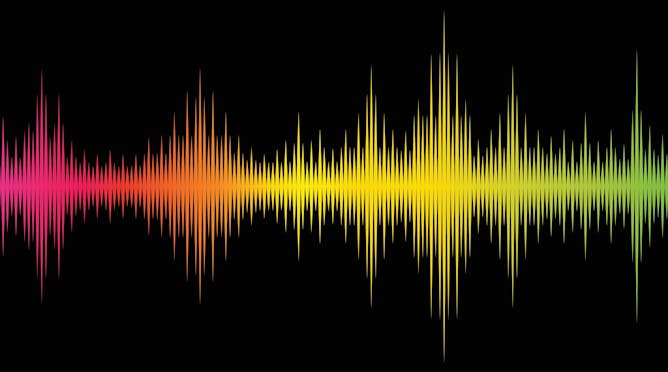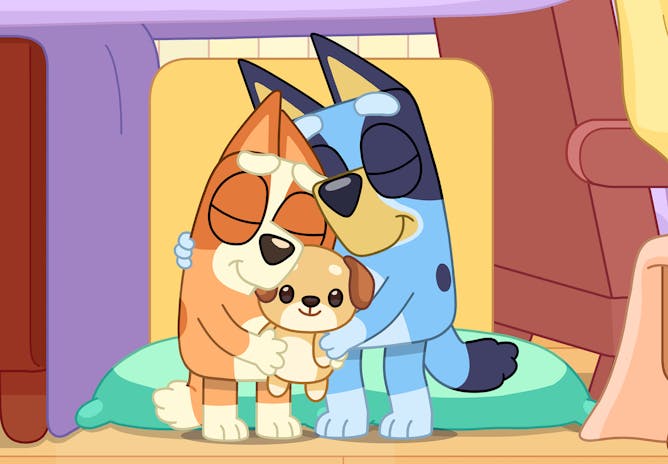|
|
|
|
In 1906, US composer and marching band king John Philip Sousa wrote an article for Appleton’s Magazine titled The Menace of Mechanical Music. In it he bemoaned devices with the ability to “sing for us a song or play for us a piano, in substitute for human skill, intelligence, and soul”.
Sousa was worried the gramophone and the player piano, by making it possible to hear music without the presence of musicians, would lead to the decline of musical education and culture. Was he right?
Over the past century, we have listened to music via radio, vinyl, tapes, CDs, mp3s and Spotify, while inventions like electric guitars, synthesisers, samplers, autotune and affordable software have transformed the way music is made. All these technological changes have had cultural ramifications, from the birth of recording artist megastars to the way today’s pop is optimised to soundtrack viral video snippets. And of course, music continues to play an enormous role in our lives.
The latest change to the game is generative music: following in the footsteps of AI text and image generators like ChatGPT and DALL-E, new apps called Suno and Udio can generate entire songs on demand from a simple text prompt.
Researcher and music producer Oliver Bown has been working with various creative technologies for the past 15 years, and the current pace of change, he writes, “has floored me”. The current wave of AI tools are so good, in Bown’s view, that the discussion of whether computers can make “real” music is all but over.
You can listen to some of Bown’s AI-assisted creations (or perhaps AI’s Bown-assisted creations) in his article, and make up your own mind.
And what about the cultural ramifications? Will AI be putting composers and producers out of work? Not any time soon, Bown thinks. The real impact is likely to be for consumers: summoning up songs on demand for friends’ birthdays or to make jokes, or simply exploring possibilities for entertainment.
Meanwhile, one thing that hasn’t changed in the past century is tussles over intellectual property. Sousa complained of companies that would “take an artist’s composition, reproduce it a thousandfold on their machines, and deny him all participation in the large financial returns” – and today’s generative AI, trained on vast bodies of work produced by humans, often without their consent or knowledge, is triggering similar concerns.
|

|
Michael Lucy
Science Editor
|
|

Oliver Bown, UNSW Sydney
‘Uncanny’ AI music generators blur the line between creators and consumers. Will they turn music from high art to an everyday language? Listen to these AI-generated tracks and judge for yourself.
|
Best reads this week
|

Dominique Condo, Deakin University
Skinfold tests were once a staple of AFL fitness assessments, but are now banned for junior athletes. Is this a sign footballers have ‘gone soft’, or is there good reason for it?
|

Hugh Breakey, Griffith University
A new book argues that the first generation to go through puberty connected to their smartphones have had their brains rewired for depression and anxiety.
|

Joshua Black, Australian National University; Frank Bongiorno, Australian National University
Scott Morrison’s Plans for Your Good is part political memoir, part self-help book, and very strange.
|

Fron Jackson-Webb, The Conversation
Neither Ozempic nor Wegovy are listed on the PBS to treat obesity. When Wegovy becomes available, users will need to pay the full price. Or should the government subsidise it?
|

Jessica Balanzategui, RMIT University; Djoymi Baker, RMIT University
Bluey’s widespread appeal can be considered a symptom of the slow decline of age-based viewing.
|

Erin Harrington, University of Canterbury; Edith Jennifer Hill, Flinders University; Joy McEntee, University of Adelaide; Liz Giuffre, University of Technology Sydney; Phoebe Hart, Queensland University of Technology; Stuart Richards, University of South Australia
It seems to be a time of old favourites: this month we have new seasons, adaptations, and a documentary on childhood television memories.
|
Podcasts
|

Dean Lewins/AAP
Michelle Grattan, University of Canberra
In this podcast, we're joined by Dr Anne Summers, a longtime writer and advocate on women's issues to discuss the horrific number of women murdered this year.
|

TSViPhoto/Shutterstock
Gemma Ware, The Conversation
Daniel Angus, a professor of digital communication, explains how artists are trying out data poisoning to protect their intellectual property. Listen to The Conversation Weekly podcast.
|

Shutterstock.
Jacco van Loon, Keele University
You could jump much higher on the moon than you can on Earth – but you’d be in no danger of shooting off into space.
|
Our most-read article this week
|

William Geary, The University of Melbourne; Dale Nimmo, Charles Sturt University; Julianna Santos, The University of Melbourne; Kristina J Macdonald, Deakin University
We compiled maps of bushfires and prescribed burns in southern Australia from 1980 to 2021 to see how fire activity is changing habitat for 129 threatened species such as mountain pygmy possums.
|
In case you missed this week's big stories
|
-
Anastasia Powell, RMIT University
Public focus on, and anger about, the horrifyingly high rates of violence against women is at fever pitch. What have the country’s leaders agreed to, and will it fix the problem?
-
Samantha Schulz, University of Adelaide
Since February, researchers have been surveying South Australian teachers about sexist views among their students.
-
Rick Sarre, University of South Australia
Half of the women homicide victims in 2022-23 were killed by a former or current partner.
-
Ian Douglas, UNSW Sydney; Seena Sarram, UNSW Sydney
Making a jet airline succeed hinges on three key factors – market scale, airport access, and geography. Australia offers new entrants a brutal starting ground on all three.
-
James Graham, University of Sydney
The strategy seems to offer the best of both worlds – live in a place you can’t afford to buy while getting a foot on the property ladder elsewhere. But it’s not a panacea for our housing market woes.
-
Marco de Jong, Auckland University of Technology; Emma Shortis, RMIT University
We now know official New Zealand meetings to discuss ‘AUKUS Tier 2’ took place much earlier than previously disclosed – raising questions about the security pact’s underlying purpose.
-
Sarah Wilson, University of Technology Sydney; Rachael Wakefield-Rann, University of Technology Sydney
In Australia, the taxpayer has footed the bill for the forever chemical clean-up so far. But this will have to change.
-
Peter Martin, Crawford School of Public Policy, Australian National University
The UK is about to force banks to reimburse payments made “because of deception by fraudsters”. Australia’s government isn’t keen.
-
Jonti Horner, University of Southern Queensland; Tanya Hill, Museums Victoria Research Institute
The Eta Aquariid meteor shower peaks each year in early May, but this year it should be particularly good, thanks to dark skies and extra activity.
-
Lennon Y.C. Chang, Deakin University
The attacks pose a serious threat to the island’s democracy. And they could be replicated elsewhere.
|
|
| |
|
|
|
The Conversation AU
Melbourne VIC, Australia
•
Full Time
|

|
|
The Conversation AU
Melbourne VIC, Australia
•
Full Time
|

|
|
|
|
| |
| |

|
| |
| |
| |
Featured Events, Courses & Podcasts
|
View all
|
|
|
|
| |
| |
| |
| |
| |
|
|
|
|
|
|
|